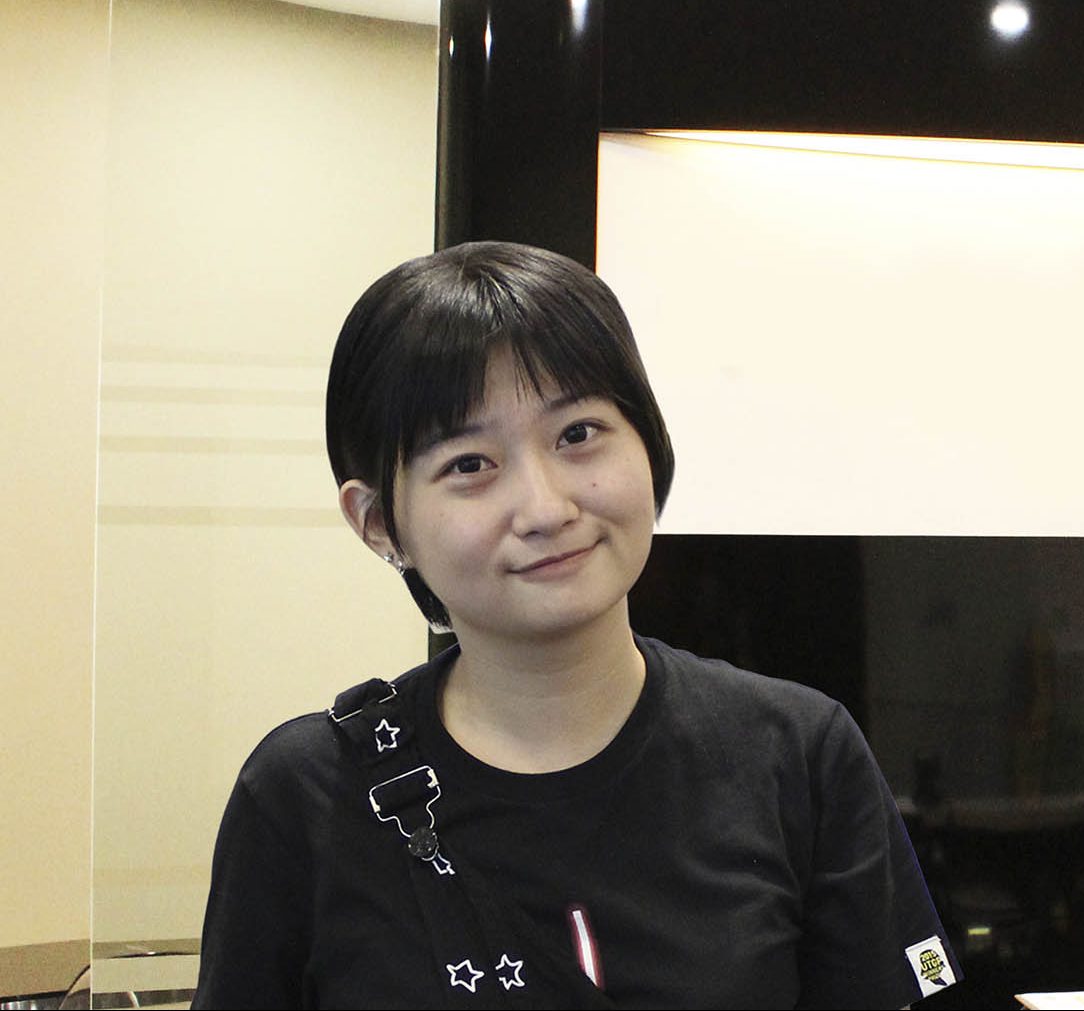
OVERVIEW
About This Programme

Level up with LSBF Singapore’s MBA Global, a premier master of business administration in Singapore designed for ambitious professionals. Gain in-depth knowledge of MBA subjects like finance, marketing, operations, and leadership, with an international perspective on MBA in global business. Flexible options include part-time or full-time study, ideal for working professionals. This MBA programme in Singapore enhances career opportunities and equips you with strategic management skills.
This internationally focused MBA programme prepares graduates for high-level careers in multinational corporations, consulting, entrepreneurship, and leadership roles across sectors. With a strong foundation in global strategy, critical thinking, and applied business skills, graduates are well-positioned to lead in today’s interconnected world.
The MBA Global programme is designed for recent graduates and early-career professionals and enables them to enhance their knowledge of global business. This course is a popular master’s programme in the Business Faculty. Upon completion, the MBA will be awarded by the University of Greenwich.
Start your journey with LSBF’s MBA courses in Singapore and strengthen your leadership potential.
Ranked Top 7% Globally by Center for World University Rankings
Research Excellence Framework strong research quality across all subject areas
Guided career sessions
MODULES
Designed to explore beyond subject knowledge
The Master of Business Administration Global offers a comprehensive curriculum designed to develop effective global business leaders. Core modules such as Dynamics of Global Business and Practices, Strategic Management and Leadership, and Global Entrepreneurship and Innovation focus on building strategic thinking and leadership capabilities for international markets.
Students gain expertise in Financial Resource Management, Global Supply Chains, Ethics and Global Corporate Citizenship, and data-driven decision making through International Data Analytics. The programme features practical learning through the Simulated Learning Project and culminates with the Business Consultancy Project, enabling students to apply their knowledge to real-world business challenges while developing essential consultancy and problem-solving skills for today’s global business environment.
Dynamics of Global Business and Practices
This module aims to provide learners with an in-depth understanding of the global business environment, including economic, political, cultural, and regulatory aspects that impact international business operations; the skills to analyse global markets, identify opportunities and threats, and make informed market entry decisions and understanding how to navigate cultural differences, operate effectively in diverse settings.
Global Entrepreneurship and Innovation
The aim of this module is to develop students’ entrepreneurial and innovative capabilities; the theoretical knowledge necessary to promote international competitiveness; and the practical skills to drive innovation within whichever context they find themselves.
Simulated Learning Project
The aim of this module is to enable students to apply theoretical concepts in the context of a simulated international company that is facing traditional business challenges alongside those posed by the Sustainable Development Goals. The module seeks to foster leadership and team management skills along with intellectual dilemmas and challenges presented by the context of the learning simulation.
Business Consultancy Project
This module provides students with the opportunity to explore and evaluate the practical application of business concepts through the experience of working as members of a consultancy team investigating a client business issue and construct a detailed consulting proposal to be pitched to the potential client. Competitive consulting proposals will be evaluated by the client and academic staff. The consulting proposal will be evaluated on the basis of likelihood of being the preferred supplier of consulting services to the client.
Students will work on live business problems, taking a briefing from the management of client organisations, applying creative problem solving and innovation techniques, presenting a competitive consulting proposal back to the client. The module provides a practical focus of the MBA programme in that students need to integrate all the skills acquired throughout the entire programme. Four aspects will receive special attention in preparatory learning: consulting pitch-design & construction; group-based creative problem-solving techniques; project management concepts, and the soft skill dimensions of being a consultant. This course aims to develop the confidence and competence to apply knowledge to real business scenarios, and to develop the personal and team-based skills to be effective in this. Sector specialisms may be applied to this course.
Global Supply Chains
This module aims to enable managers and aspiring managers to develop a comprehensive knowledge of supply chains. It encompasses core principles and techniques that underpin the successful management of supply chains.
Ethics and Global Corporate Citizenship
This module aims to introduce learners to ethical challenges facing businesses and innovators. There is a widespread consensus that business leaders must not merely respect the law but have ethical and social responsibilities beyond the law. Value dilemmas and difficult ethical decisions often end up on executives’ desks, so future leaders must develop reasoning abilities to resolve ethical problems. Learners will engage with a wide range of ethical perspectives and apply them to analyse important ethical case studies. Upon completion, learners will be able to make more confident ethical judgments, to better anticipate ethical and regulatory risks in their business, to resolve ethical conflicts in their team, and to communicate ethical choices more effectively to their stakeholders.
Strategic Management and Leadership
This module presents the strategy, challenges of strategic management, and core components of the environment. The module also discusses leadership styles and theories of leadership traits to meet the current and future needs of the organisation. Therefore, the module’s aim is to enable students to apply effective strategic management aligned with appropriate leadership styles. Consequently, students will be confident to apply a responsible leadership approach in creating value for organisations and their stakeholders.
Leading and Managing Change
The aims of the module are to offer a wide variety of theories and frameworks applicable to leading and managing change in public service organisations; To identify the special difficulties and complexities associated with leading and managing change in public sector contexts; To examine elements that can facilitate or impede effective change in connection to individuals, organisations, and society in order to challenge long-held preconceptions about change management; To investigate various change agent/change agency models; To present a multi-level perspective on change, emphasising the interconnections between society, institutions, organisations, and individuals.
International Data Analytics
The concepts of statistics and data analysis tools are introduced in this course within a business and organisational framework. It seeks to give students the analytical tools and skills to effectively summarise and present data supporting decision-making activities. Students will be facilitated and assisted in this work using the proper computing software applications. Through their study of this course, students will be equipped to use statistical and mathematics concepts to address straightforward yet practical problems. The purpose of this subject is to acquaint students with the ideas, vocabulary, methods, and tools of big data analytics.
Financial Resource Management
The aim of this module is to showcase how funds are sourced for firms and business entities, to teach the ways by which leakage of funds can be stopped, and to demonstrate how to make wise investment decisions. The module will also show how to adequately evaluate cash flow statements and teach how to develop and interpret financial reports/statements.
Marketing and Sales in the Future Economy
To prepare students to adapt to emerging trends and changes in the future economy of digitalisation and sustainability and enhance their understanding of knowledge and skills needed to succeed as marketing and sales professionals in this rapidly evolving landscape.
Full programme structure and learning outcomes
Get details and learn about the advantages of learning with LSBF.
what to expect
Advance Your Career in Business
Programme Aims
Master Global Business Leadership in a Rapidly Evolving Economy
This programme is expertly designed to meet the needs of business professionals and employers in today’s fast-paced, ever-changing global economy. Whether you’re aiming to step into international business or accelerate your leadership trajectory, this programme equips you with the strategic edge to succeed in the global marketplace.
- Gain a Comprehensive Understanding of Global Business Issues
Develop a deep awareness of global economic trends, cross-border challenges, and international leadership strategies to become an effective global business leader. - Explore a Wide Range of Relevant Subjects
Study key areas such as international business dynamics, global entrepreneurship and innovation, ethical leadership, corporate governance, change management, global supply chain strategies, marketing and sales in the future economy, international data analytics, financial resource management, and business consultancy. - Develop In-Demand Business Skills
Acquire both hard and soft skills essential for global business success—including critical thinking, problem-solving, cross-cultural communication, and leadership—empowering you to thrive in senior management roles across industries. - Bridge Knowledge Gaps for Non-Business Graduates
Designed for students without a traditional business background, this programme provides the foundational knowledge and advanced skills necessary to excel in the international business landscape. - Master International Business Strategies and Contexts
Understand how international businesses operate, manage, and respond to external forces, preparing you to make strategic decisions in complex global environments. - Apply Critical Thinking and Research Methodologies
Learn how to analyse, evaluate, and apply business theories and research techniques that are highly valued by global employers. - Foster Lifelong Learning and Personal Growth
Build personal effectiveness, self-direction, and creativity to adapt and lead in a continuously evolving business world. - Launch a Global Career Across Diverse Sectors
Prepare for leadership roles in multinational corporations, start-ups, government agencies, and non-profit organisations operating in international markets.
Learning Outcomes
Graduates of this international business programme will develop a comprehensive skill set combining academic knowledge, practical business expertise, and global leadership capabilities.
The programme focuses on four key outcome areas: Knowledge and Understanding, Intellectual Skills, Practical Skills, and Transferable Skills.
Knowledge and Understanding
Graduates will be able to:
- Understand how international organisations operate within global markets, including the challenges of cross-border management and external economic, political, and cultural influences.
- Gain deep insight into international business strategy, global innovation, the internationalisation process, and the dynamics of global competition.
- Master research methodologies, academic scholarship skills, and how these are applied in both academic and real-world business contexts.
- Understand advanced leadership theories and problem-solving frameworks through collaborative learning, professional development, and reflective practice.
Intellectual Skills
Graduates will demonstrate the ability to:
- Develop a critical awareness of the complexities involved in managing across international borders and evaluate diverse and often conflicting sources of business knowledge.
- Understand the philosophical, theoretical, and methodological foundations of academic and applied business research.
- Analyse, synthesise, and solve complex and unstructured business problems using logical and evidence-based approaches.
- Collaborate effectively with peers to explore professional values and address key theoretical and practical concerns in international business.
Subject-Specific Practical Skills
Graduates will be equipped to:
- Apply research techniques and methodological tools in both academic and business environments.
- Communicate clearly and professionally in an international business context, including cross-cultural and multilingual settings.
- Conduct in-depth analysis of global business environments and evaluate organisational capabilities.
- Formulate strategic plans across operations, marketing, and international growth that align with modern corporate strategy.
Transferable and Professional Skills
Graduates will also develop:
- Reflective learning techniques to critically assess the relevance, efficiency, and impact of knowledge in professional practice.
- Strong skills in managing and interpreting complex, and at times conflicting, data, theories, and methodologies.
- Effective communication skills for a variety of professional and international business scenarios.
- Leadership, negotiation, and influence skills essential for global management roles.
Skills you will acquire

$92,000+
median Singapore salary for Accounting
483,000+
Singapore job openings in Accounting
75%
of graduates report positive career outcome
programme structure
Assessment Methods and Graduation Requirements
Assessment Methods:
Continuous assessment, Formative and Summative Assessments
Any combination of class participation, group or individual assignments, online quizzes/online tests, portfolios, written exams etc.,
Graduation Requirements:
Students must complete and pass all required modules in this programme to receive the graduation certificate.
Attendance requirements
International Students: 90%
Local, PR, non-student pass: 75%
Teacher student ratio
1:300
STUDENT SUPPORT SERVICES
Why choose LSBF for your education
Study Materials
Students will receive study materials after they have made full payment for their programme. Replacement of study materials is subject to additional charge.
Student Portal
Students have access to the Student Portal. It is a useful site where the course information and learning materials are available for students’ easy reference.
Accessible Faculty
Students may contact their lecturers directly via email outside the lecture hours for any academic related queries.
Recorded Lectures
We will show compassion and care to all stakeholders as we believe the journey is as important as the outcome.
ELIGIBILITY
Who can apply for this programme
Minimum Academic Entry Requirement:
Students who have successfully completed either of the following
- Bachelor’s degree from a recognised University with minimum 2:2 classifications or equivalent overseas qualification.
- Applicants without a degree that have professional qualifications, or relevant professional experience may be considered.
- Students who have obtained equivalent qualifications in relevant fields (usually professional qualification), will be assessed case-by-case and subjected to university approval.
Work Experience
- Recent graduates and early-career professionals
Minimum English Language Entry Requirement
- Applicants who have not studied prior qualifications in English require IELTS 6.0 or equivalent in an accepted English language test.
Minimum Age
- 21 years or above
TUTION FEES (Prices inclusive of GST)
SGD $17,440.00
(local students)
SGD $22,890.00
(international students)
FAQs
Is this programme eligible for SkillsFuture (SSG) or Post-Secondary Education Account (PSEA) funding?
SkillsFuture (SSG) and Post-Secondary Education Account (PSEA) funding are currently applicable only to selected programmes offered by public institutions such as NUS, NTU, and SMU. While this programme is not covered under those schemes, we’re pleased to offer exclusive rebates and promotional rates. To learn more about the available fee support and eligibility, please contact our Education Consultants at +65 6580 7700 or get in touch here.
What career opportunities are available after this degree?
You’ll be equipped for roles such as international business consultant, regional operations manager, trade analyst, or global marketing executive.
What can I study after this degree?
You may pursue professional development in areas like supply chain, entrepreneurship, or digital transformation through short courses or microcredentials.
What if I want to pivot away from business?
That’s okay. Your cross-cultural understanding and strategic thinking are applicable in general management, marketing, or consultancy roles.
How do I get started?
Reach out to our expert education consultants at +65 6580 7700 or visit us at 80 Robinson Road, #01-00, Singapore 068898. We’re here to help you plan your next step.





















